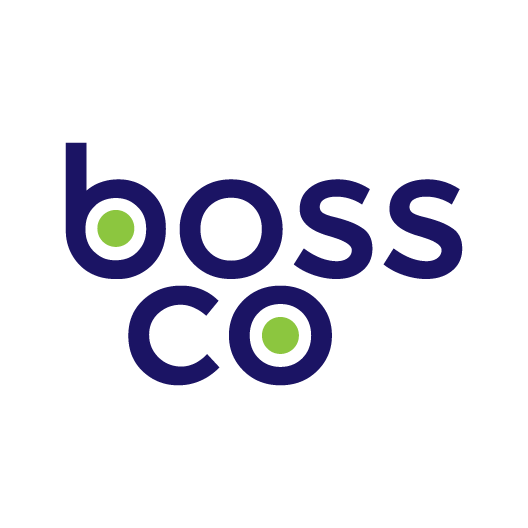Details of a specific use case regarding implementation and requirements gathering.
Flexible Engagements
Support Retainer Engagements where Senior Resources may lack but not Junior willing resources.
Tightly Managed Hourly Projects Running Sprints
-or-
Fixed Price Projects if You Have a Feature that Benefits from it.
Managing Timeframes
It’s hard to suggest the timeframe with zero context, but I can safely say that the standard operating procedure we use of weekly sprints and the weekly check ins and daily standup 5 minute meeting to keep things moving forward.
Unblock the blocked without letting a dev righteously stew on a bug with the nugget of knowledge from the business which tends to happen and people get impatient. Adopt a simple change management process and it will pay off big time if you are still on the system come a few years.
AI/ Einstein/ AgentForce/ on and on..
It is noticeably making some people choose sides and hop on board with AI or just shun it subconsciously somehow, but Salesforce is in a strange position there with a lot of competition. I’d write them off as not being in lock step with things like ChatGPT, and some of the weirdest parts are was that he was done, he knew he wasn’t evver going to have to write another sentence! Since then every week brings a new AI surprise and it’s great when people work together.
Need to Talk to Someone Now?
Contact us and we’ll make every effort to accommodate your request! I’d love for this to evolve into a bustling community of people eager to learn tech. I can confidently say that we will. get further than a support ticket to Salesforce would, unfortunately. As an end user this killed me and is what brought that service about.
Salesforce with Ease
My job for double digits amount of years has been to hear peoples complaints as users and try and prescribe a technical fix.
Through consulting and a bit of a relocation across the country to some corporate jobs, I have seen an array of orgs and will give you objective verifiable info in real time.
I am happy to explain any detail if it is ever sounding like a foreign tech language to get a update on what broke.
On the other side of that if you are busy and want to communicate your vision and get features implemented we will find a way that works great for getting reliable changes into the system at a decent cadence.
Requesting Training Assistance
Absolutely, you have the ability to always ask us any questions, let us assist you in any way we can.
IF more formal sessions are needed or even a session with the team, I love to teach people technology and am always happy when I see someone who cares enough to learn it.
Some may say “power user” or “champion” of salesforce, don’t underestimate how helpful that can be for eventually streamlining things.

Have additional inquiries?
We are here to help. Let’s engage in a conversation.
FAQs on Salesforce Implementation and Customization
Planning your implementation is a crucial step. Think about it as you will be spending 40-45 hours a week with this system, so maybe a little buy in could go a long way, and make your days go by faster. Getting settled in on a strong foundation is important given the complexity of the platform and the real posssibility that bugs in your system may take a day or days to debug and diagnose. 500 Flows and 98% of allowed apex all firing off in a flak nightmare transaction that someone is trying to trace back and forth and stay legitimate. It takes a really keen attention to detail to understand the before/after and sync/async concepts on top of the trigger contexts and what is happening. Toss in someting like Flow or a Community and if it is a problem on Salesforces end you may not be able to get in there. We did our bit to voice our disgusts.
What are some of the common pitfalls of Salesforce implementations?
I would say the biggest pitfalls are typically around shortcutting proper licensing to minimize seats, or not investing in the talent to get you setup properly so you don’t live perpetually fighting fires in your org.
The pressure to move the ball forward at all levels keeps things lean in a lot of budgets, and sometimes the fact the Sales team dominates Salesforce usage a very technical system can end up with non technical people, causing all kinds of fun distractions for everyone.
The ideal state is everyone in harmony, but Salesforce has been a thorn in a certain employees side in Engineering at some point and they don’t want ownership of the platform if they don’t know much about it.
If you can properly plan the work and resources, and not go offshoring hoping to find a cheap unicorn developer / BA / etc, and dedicate attention to it enough to realize a C-suite person can’t multi task Salesforce Admin and their role to save a few bucks. It gets into a contracting grey area with Salesforce too, but also is an audit nightmare for changes and is to be avoided at all costs.
I think it is important if you are at a stage where you are looking for Salesforce help make certain that you can define a product catalog if you want to be effective with Opportunities and reporting and Leads if you are utilizing them. I have sat at the other side of the table hearing co workers sell the service of helping define that, and it’s crazy how differently sales teams can do things and no one knows it.
That is why locking in the processes is for the best once you do invest time into Salesforce, and we can help facilitate getting all of that information unearthed and to the surface and everyone connected on a knowledgeable level. Process diagrams, data model diagrams, if not seen as overly technical can tell a story quickly and there are a ton of standards defined to keep people in some semblance of order.
How can I avoid unnecessary customizations and Agency billings?
As part of looking at your current processes and seeing how to get them into their next life in Salesforce, we can also talk about something that is more of an ondemand to suppport internal teams if you have capable people who just need that confirmation and nudge in the right direction with a safety net. It comes down to trust I think, and I hope to have the chance to deliver ad prove the work and earn your trust and make some fascinating things in the cloud.
I have seen a lot of decision makers who want to really not engage with a consultancy and get roped into a sales pitch, kickoff, hundreds of hours etc… knowing its pretty boiler plate stuff you are trying to do. That brings up another great point which is I take a pride in helping people understand how the out of box functinality works to maximize the benefit of that, because there is a TON of it.
If its a pain point in your industry, you can guess there is probably some way to improve communication or timeframes or some positive metric by getting people in lock step and into a database where you can start collecting your treasure trove of your own data.
There are a lot of stories to be told by tat data once a year or 2 goes by of constant day to day use. You can really start to hone in on what factors of an opportunity benefits the deal the most to where the Closed Won percentage is huge when some set of data points equates to some common pattern.
Then you can focus in on that and rinse and repeat, but it does take some attentiveness and I am not saying it won’t lead to a bunch of new ideas about where to tighten things up.
Salesforce Implementations via Offshoring and My Experiences
There is a culture gap sometimes that happens with a global company and how people may approach work, but I want to make sure I don’t appear to write off all offshoring and finding someone outside of the US for your tech needs. The common denominator with the failures of those engagements from what I have seen is that the requirements weren’t ever solidified in more than 1 or 2 peoples heads, and although they clearly know what they want, communicating that and getting pushback can be challenging in those situations and you end up with exactly what you may have asked for, without hoping some mystery requirements would all iron out perfectly without people talking.
You get what you ask for meaning of the 10% chance you are delivering them pristine requirements queued up from a dedicated project manager or scrum master, the tests and QA, and overall tracing back of requirements to requests gets lost in the shuffle of just defining what you need done. Indeed it is job security and a consultants job to consult, but freelancers are also another breed of possible resource and you really are at the mercy of the organic build up of roles around a Salesforce team, if you intend on having the full monty of QA/BA/PM/ etc.
It really is frustrating when hours are a constant back and forth if someone is pushing back on fundamental things that should be getting done, which can happen also and get people stuck in their “accidental admin” roles and transitioning to more technical or senior roles managing the platform.
If you have loosely defined requirements and the Project management aspect isn’t something that your team is doing well at the moment, there 12/24 hr gaps in time zone and connectivity availability always rears its head and shines a bright light on lack of planning.
Salesforce has a lot of great training resources on how to save money and get people into the system to help streamline a workflow, and I am happy to talk through that as well. If someone takes an interest in Salesforce internally and they are a good worker, that can be a nice way to build a strong team, and it will make everyones life easier working through the growing pains of some new change management processes, and a much less committal plan like the Slack Support Service could be an easy way for you to get key answers quickly to anything from how to test and streamline your changes, to complex development help, and that can be a great safety net for the right self sufficient team.
The perspective above is that of a Consultant and then some commentary about how the startups I have worked at have operated, with the lean licensing and such. It can be a complete opposite experience at a gigantic company that moves like a behemoth of bureaucracy, where the consulting pressure is gone and you are with a team of your peers. What those teams look like varies greatly and I will try and summarize by saying this, if you are
In Summation: The legwork of tying together user lingo with business lingo and making features out of it is very hard to do as one person, especially if you are getting unfiltered requests all day. You’ll never be able to plan that work. Avoid the crapshoot of your account executive upselling you, and if you have any questions at all about the process of rolling out Salesforce to a team, or expanding your team, I always love to make sure that the 80% cheaper licenses can’t be utilized for what your needs are, as that can be a massive savings over time and you get the main benefit desired of a department able to do their business and log everything in a system. I speak of the Platform Licenses which are designed more for like..say… a fulfillment team to check off post sales operations work and gating criteria etc.
If they don’t need that full featured CRM functionality, or certain niche features, there could be money to save. Make sure you thoroughly vet the current options as it is constantly in flux. “Essentials” edition and whatever the flavor of the month may be the savings come with some trade offs, and it is important to not find that out on deployment day if it was ignored. Between the Experience Cloud options (aka Communities of old days), portals, Sites that are made public, there are a ton of ways to interact with your org, and it can all work in a way that can get your data where it needs to be and get automation in place that can save time and money and stress.
Implementation Resources:
- Template for gathering your user personas
- Template for deciding record access needs
- Template for a barebones Project Management process / system called Pivotal Tracker, complete with templates for the stories that will soon be playing a large role if they aren’t already.
- The mechanism for documenting change requests and tracking them through the lifecycle of whatever type of setup your team may have is paramount to have scoped out and in use or you will get to your wits end re-doing work over and over or being certain that you had something like this fixed recently.
- Without that Project Management data it is really hard to justify and it is the sole reason for the standards that are buzzing around as words today like Agile and Waterfall.
- More bonus things like ready to use connectors to utilize Google Cloud Functions for free from Salesforce (requires development resource as it would be a code solution).. and things like Colab Notebooks designed with SFDX in mind and connecting to your org easily and getting metadata and documenting it potentially.
- Getting your org data and metadata backed up to a Repository is a quick win with the right person to make sure its setup and fully connected and communicating.

